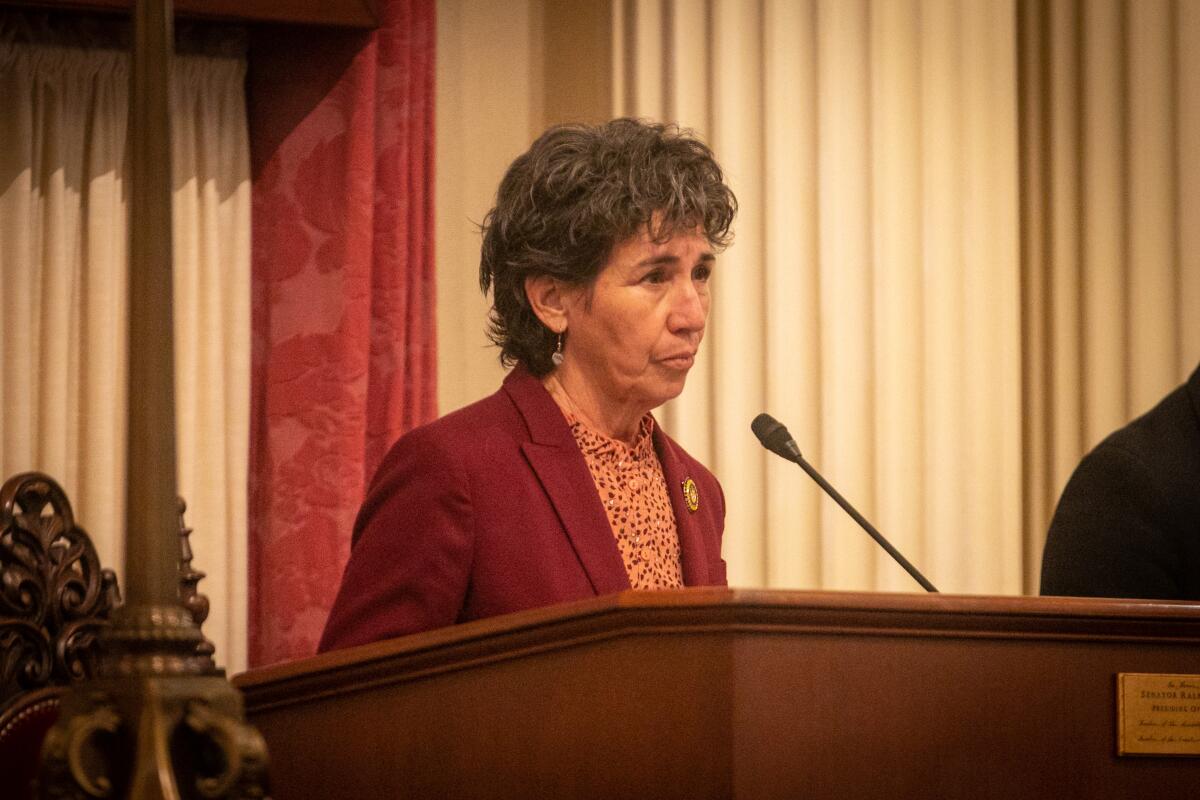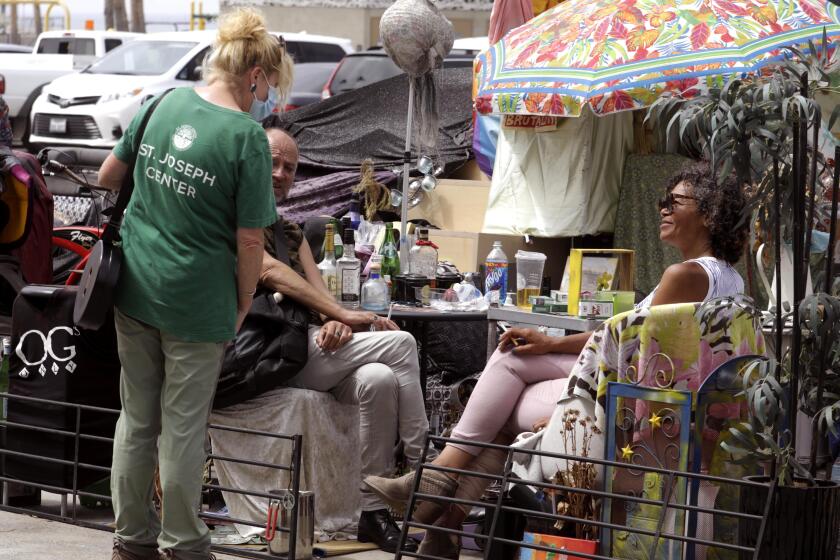Editorial: Forcing treatment on mentally ill homeless people is a bad idea

California’s mental health care infrastructure is controversial for the wrong reason. Critics target the groundbreaking Lanterman-Petris-Short Act of 1967 for supposedly filling the streets with drug users and mentally ill people. But LPS, as it is known, didn’t do any of that. It and similar laws adopted in other states simply limited the vast power of government to take people into custody and force them into mental health treatment.
LPS was supposed to be part of a larger restructuring of support under which mental asylums were to be replaced by multiple levels of service: acute care for people in crisis, intermediate “step-down” care for people in recovery to transition out of hospitalization, community clinics for ongoing outpatient care. But these necessary companions to LPS never materialized.
As society learned more about the nature of psychiatric conditions, and as people living with mental illness began to organize and advocate for themselves more effectively, other types of care were proposed, such as peer communities or villages organized around the particular needs of people dealing with mental illness.
Government did in fact invest in this reimagined version of care for people with developmental disabilities that originate at birth or in childhood. In combination with the state’s department of disability services, a network of “regional centers” provides services that allow people to live their fullest, most independent lives to the extent their conditions permit. The system has its flaws, but it is a model for providing — simultaneously — care, dignity and self-determination.
California wants to hold mentally ill and homeless people ‘accountable’ for the services our society fails to give them. ‘CARE Courts’ is the latest attempt.
Californians in need of emergency and ongoing psychiatric care also ought to have access to similar services to enable them to likewise live fully, with guidance where needed, and without compulsion or criminal-like loss of liberty where they are not needed.
Some level of involuntary care will always be appropriate for some Californians, but the point of LPS is to ensure that people dealing with mental illness are not forced into custody and treated against their will unless absolutely necessary for their safety or that of others.
Too many people with psychiatric conditions and substance use disorders live on the street and in serious danger, but not because LPS made it too hard for government to take them into custody or because they are afforded too much power over their own lives and bodies. Rather, it’s because we’ve never followed through with sufficient services to see to their needs.
That’s the problem with Senate Bill 43 by Sen. Susan Talamantes Eggman, a Stockton Democrat, which would force more people into involuntary treatment in the hope that time-limited care will somehow address their ongoing needs.
California’s landmark laws to protect the civil rights of psychiatric patients are being improperly scapegoated as the cause of rampant homelessness.
There’s little if any evidence that such an approach works — if by “works” we mean lasting improvement in their condition or the creation of the housing and supportive service they will need once the emergency hold or conservatorships expire.
Unfortunately, to Californians frustrated by seeing squalor and misery on their streets, “works” may mean sweeping mentally ill or drug-using homeless people into custody, even if only temporarily.
And in fact, permitting the sick to live on the street without care is not an acceptable option. But current policies foolishly made the choice binary.
Without a system that includes sufficient ongoing care, we leave only two choices for unhoused people with psychiatric needs after they are stabilized: Continue occupying beds that are needed for others in crisis, or return to the streets.
It’s time for critics of the Lanterman-Petris-Short Act to reconsider their approach to the state’s dire mental health crisis. The state and counties have to find a way to provide ongoing mental health care.
For those struggling with substance use, especially opioid dependence, the choice is even more stark, because returning to the street after having been weaned off the drug, but without ongoing counseling and support, often means death by overdose. The same dose that they formerly tolerated can become deadly following treatment.
In 2019, lawmakers asked the state auditor to critique LPS for its supposed shortcomings, but the resulting report found the problem was with inadequate ongoing services, not the law. It’s as though California’s care infrastructure for mental health and substance use is a leaky and overcrowded canoe. It won’t help to add more passengers who don’t want to be there, as SB 43 would do. We’re going to need a bigger boat — and a better one.
More to Read
A cure for the common opinion
Get thought-provoking perspectives with our weekly newsletter.
You may occasionally receive promotional content from the Los Angeles Times.













